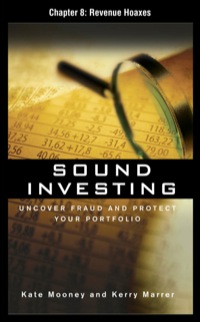Question
Kindly provide an explanation as to what are the main concepts pertaining to arriving at relevant costing and discuss how these principles might apply to
Kindly provide an explanation as to what are the main concepts pertaining to arriving at relevant costing and discuss how these principles might apply to a manufacturing company.
Answer:
A relevant cost is a current or future cost that will differ among alternatives. For example, relevant cost of material is the raw material cost that needs to be considered while taking a managerial decision. Relevant cost of material may be in the form of incremental cash flows or opportunity cost. The historical cost of material is irrelevant because it cannot be altered by new decisions
- Differential Costs: These costs represent the difference in total cost between the two alternatives. In computing future costs the difference between individual items of relevant costs for each alternative is noted. The sum of these differences is the differential cost, also referred to as the incremental cost or the net relevant cost. This cost plays an important part in managements decision-making between alternative courses of action. Complementing differential cost is the corresponding concept of differential income or revenue. For example, if the cost of alternative A is $10,000 per year and the cost of alternative B is $8,000 per year. The difference of $2,000 would be differential cost.
- Opportunity Costs: The decision to use a particular resource in one way rather than another means that management has given up the opportunity to use it in the alternative way. An opportunity cost is the potential benefit that is given up (foregone) when the choice of one action precludes a different action. The lost opportunity is a cost that must be taken into account when making a decision. It should be emphasised that oopportunity costs are relevant costs and should not be overlooked. For example, a company has a $40,500 rent expense. The opportunity cost of $40,500 could have been spent on production machinery.
- Sunk Costs: The term sunk cost is often used to define costs incurred in the past. The important point to be made about a sunk cost in the context of decision making is that it is irrelevant to a decision, since decisions are about future actions. Sunk Costs have already been incurred; they do not affect any future cost and cannot be changed by any current or future action. They are therefore irrelevant to decisions. An example of a sunk cost is the book value of an asset. This value is the acquisition cost of an asset minus accumulated depreciation to date. Whichever alternative is eventually chosen in the decision-making process, the book value of the old asset (e.g. piece of equipment) will be an expense or loss in the next year. The current book value of old equipment is a sunk cost and irrelevant to future actions. For example research and development expenses incurred for the production of a new product.
- Avoidable and Unavoidable Costs: In certain circumstances, a company may need to make a decision regarding the maintenance or elimination of a particular good or service. In making that decision, management would need to consider the costs that will continue to be incurred even when the product or service is eliminated and those that will no longer be incurred.
Comment on the answer above; agree/disagree with reasons with supplement information, providing help/suggestions/improvements.
Step by Step Solution
There are 3 Steps involved in it
Step: 1

Get Instant Access to Expert-Tailored Solutions
See step-by-step solutions with expert insights and AI powered tools for academic success
Step: 2

Step: 3

Ace Your Homework with AI
Get the answers you need in no time with our AI-driven, step-by-step assistance
Get Started


